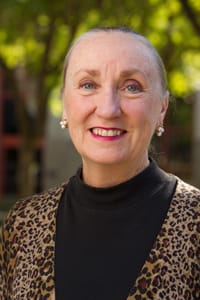CGU receives Haynes Foundation Grant to investigate effective education practices
Claremont Graduate University (CGU) has received a grant of nearly $186,000 from the John Randolph Haynes and Dora Haynes Foundation to research and identify teaching practices that are most effective at helping diverse and at-risk students during their most vulnerable ages.
Mary Poplin, professor in CGU’s School of Educational Studies, is leading the study.

The project “A Microscopic Study of Highly Effective Teaching of Particularly Vulnerable Students at Critical Ages ” will take a close look at what highly effective teachers are doing in order to promote achievement among African American boys and English Language Learners in late elementary and early middle school Native American students and community college students in developmental courses. The project also aims to help illuminate differences in highly effective classrooms across social class a trend that hasn’t been empirically studied since the 1970s.
“We are deeply grateful to the Haynes Foundation for the opportunity to conduct this research ” Poplin said. “There is a growing cadre of researchers here dedicated to dramatically improving the results of education for those for whom it is often least successful. Our team has an opportunity to delve deeper into describing the most effective teachers for these students at their most vulnerable stages.”
Poplin will be leading a team of researchers that includes CGU alumni Claudia Bermudez and María de Lourdes Villarreal and current CGU PhD students Calista Kelly Rebecca Hatkoff Wendy Moore Alejandro Lopez Jaquet Dumas David Tarazon and Jocelyn Pacheco.
The No Child Left Behind Act passed by the US Congress in 2001 as part of an effort to improve public schools by setting measurable goals for students and teachers required “highly qualified teachers” to be in public school classrooms with the aim of rectifying achievement gaps. However highly qualified—or properly credentialed—teachers were not enough to close that gap.
The more recent federal educational policy Race to the Top rewards “highly effective teachers” and aims to ensure that low-income and high-minority schools have equal access to them. Poplin’s research will attempt to identify the practices that make these teachers highly effective rather than simply qualified.
Poplin received a grant from the Haynes Foundation in 2005 which allowed her to study 30 highly effective teachers in low-performing urban K–12 schools in the Los Angeles area over a five-year period with a similar goal of identifying effective practices in the classroom. The results produced general recommendations to develop and foster highly effective teachers. The current grant will add specificity by ethnicity and age.
“While there is an assumption that students of different ethnicities need teachers who are culturally proficient we do not yet know empirically what that means in terms of classroom practice ” Poplin said.
Poplin’s work in higher education has included administration; at various times she served as dean and as director of CGU’s Teacher Education Program. Academically she explores the contemporary intellectual trends dominant in the various academic disciplines—the sciences humanities and social sciences. In 2014 she published Is Reality Secular? Testing the Assumptions of Four Global Worldviews (InterVarsity Press). She is a frequent speaker in Veritas Forums throughout the country.
About the Haynes Foundation
Established in 1926 by a prominent reform-minded physician and his suffragist wife the John Randolph Haynes and Dora Haynes Foundation is a leading supporter of social science research for Los Angeles. It is also the oldest private foundation in the city.
Each year the Foundation distributes up to $3 million in grants and scholarships to various institutions most of them local. Over the years the Foundation has funded hundreds of important urban studies in the areas of education transportation local government elections public safety demographics public personal services and natural resources.
“